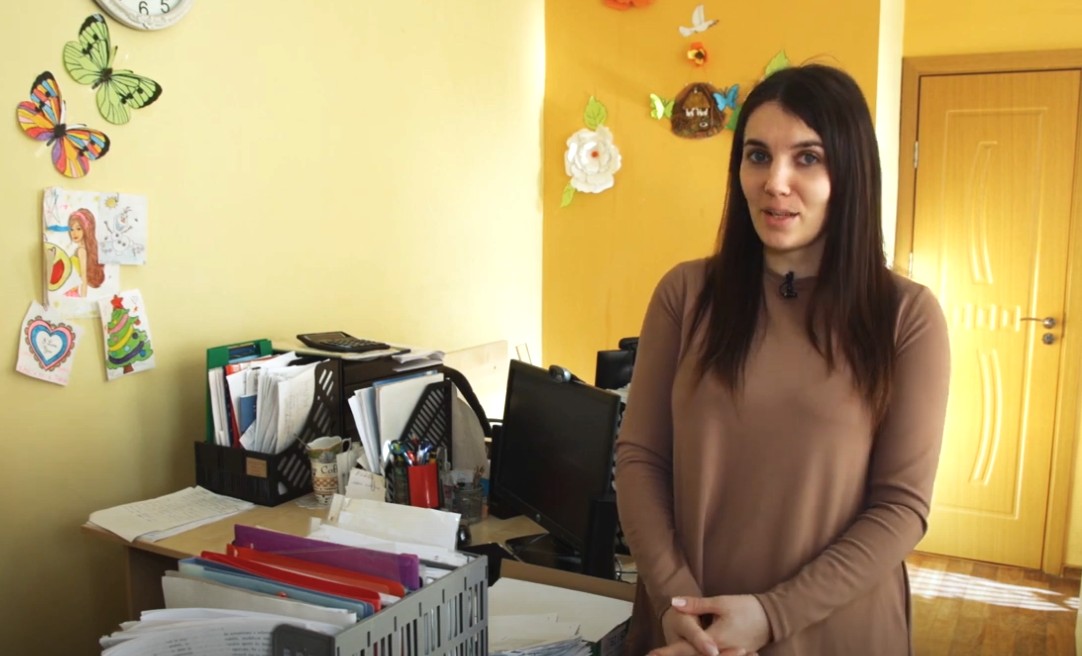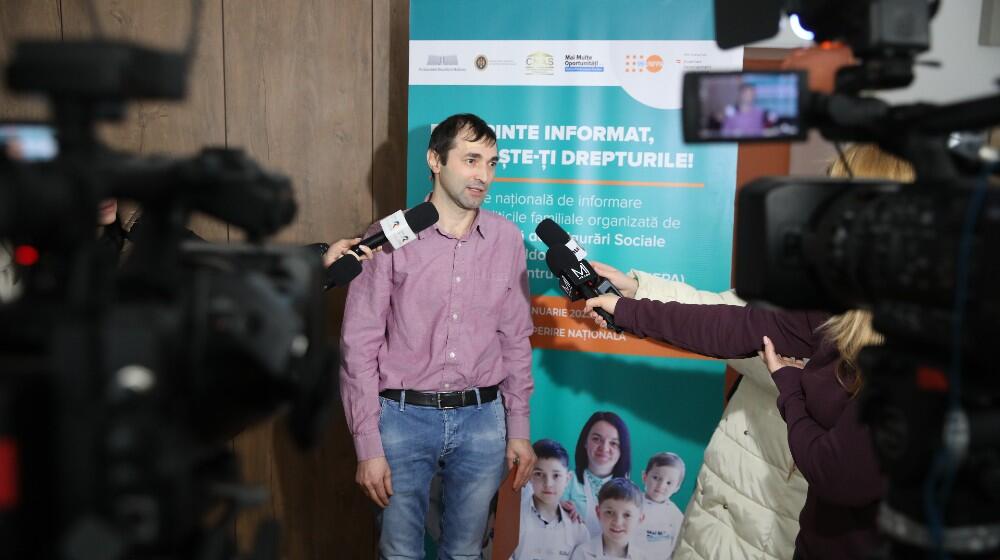36 districts and municipalities, 41 information meetings, 2000 thousand people physically informed and dozen of thousands informed online about the rights parents with children have and what options the state offers them in this regard. These are the totals of the information campaign "Be an informed parent, know your rights!" carried out nationally between January 17 and February 28, 2023, by the United Nations Population Fund (UNFPA) in partnership with the National Social Insurance House of Moldova (CNAS). The campaign was carried out in coordination with the Parliament of the Republic of Moldova and the Ministry of Labor and Social Protection of the Republic.
Irina Guțan, a mother from Ialoveni pregnant with her second child is one of the participants in the information sessions held in her town. She listened carefully to parents' new available options and flipped through the information brochures distributed to the participants.
"I consider such meetings very useful both for parents and future parents. I learned a lot of new information and one of the most useful options for me is being able to work and receive a childcare allowance at the same time. This opportunity will motivate me to return to work earlier, and I am sure that many mothers will do the same, in order not to take a long break from work", said Irina Guțan. (See more in the video available here).

Along with Irina, parents, young people, representatives of local public authorities, and economic agents from all over the country were informed, for almost 2 months period, about the new benefits that parents and caregivers have, in accordance with the latest legislative provisions regarding family-friendly policies.
- The 14-day paternity leave that can be requested by fathers during the first year of the child's life, paid from the state social insurance budget;
- The existing and the new options to receive the childcare allowance that can be taken at the parents' choice - for one year, for 2 or 3 years;
- The new possibility for the mothers and fathers to share the childcare leave and to take turns staying with the child;
- The possibility to request a flexible work schedule in coordination with the employer;
- The possibility for the pregnant woman to work in the last months of pregnancy and to simultaneously receive salary and allowance according to the highest income in the family, as well as other important opportunities now available in the Republic of Moldova.
In addition to the information sessions held physically at the national level, for the first time, CNAS experts held a LIVE information session organized in partnership with "Ask A Mom", a popular online resource for mothers. Hundreds of mothers and fathers who attended the online event broadcasted on Ask a Mom, CNAS, and UNFPA pages had the opportunity to ask questions about maternity allowance, childcare leave, paternity leave, etc., and received answers from CNAS experts about recent changes in national legislation that support families with children right during the event.

As part of the campaign, UNFPA Moldova, in coordination with national partners, developed a brochure that was distributed to the participants, as well as an informative poster that was disseminated in post offices and town halls in the country's districts.
The information campaign also included video animations broadcasted on the social networks of UNFPA, CNAS, Ask a Mom, the Parliament of the Republic of Moldova and the Ministry of Labor and Social Protection. The 3 videos inform and encourage fathers to take paternity leave and employers to provide it, and inform families about the options available to parents with children.
The main objective of the campaign is to motivate the target population to use the social benefits available to them, to support parents combine family life with work, as well as to support them to have the number of children they want.
UNFPA, through the Regional Demographic Resilience Programme, supports national authorities in promoting gender-sensitive family policies, to support mothers and fathers to balance family and personal life and to have the desired number of children, including through the creation of alternative services care for children up to three years of age.


